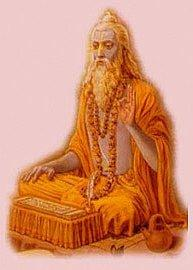Baudhayana (800 BCE – 740 BCE) was a great Indian mathematician and a Vedic priest. There is very little information about his personal life. However several of his works are known, covering areas of Mathematics, Dharma, Daily Rituals, etc.
His approach to mathematics originates from religion and shows a confluence between Hindu religious concepts and practices, and the application of mathematics. For instance, several of his mathematical concepts are related to the construction of altars for religious rituals, or astronomical calculations required to deduce the dates of festivals.
Some of his contributions include:
- Stating what we know as the Pythagoras Theorem (although Pythagoras stated the theorem a few centuries after Baudhayana)
- Calculating the approximate value of Pi
- Calculating the square-root of 2
- Finding a circle whose area is the same as a square
- Several geometric theorems related to squares and rectangles
- Geometric solutions of quadratic equations with a single variable
